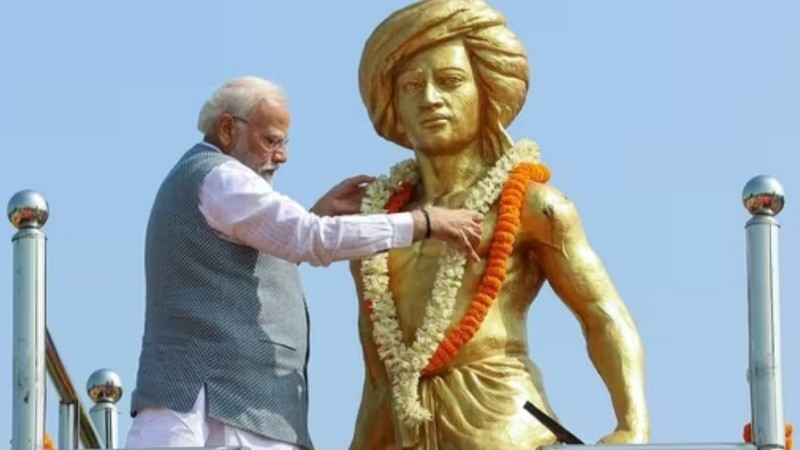
On November 15th every year, India celebrates Janjatiya Gaurav Divas to honor the vital contributions of tribal communities, particularly their immense sacrifices during the nation’s fight for independence. The day holds special significance as it marks the birth anniversary of Bhagwan Birsa Munda, a tribal hero and freedom fighter whose leadership and bravery continue to inspire generations.
Prime Minister Narendra Modi is set to visit Jamui, Bihar, on 15th November to participate in the celebrations of Janjatiya Gaurav Divas. This significant event marks the beginning of the year-long commemoration of the 150th Birth Anniversary of the revered tribal leader, Dharti Aaba Bhagwan Birsa Munda, whose contributions to India's freedom struggle and the welfare of indigenous communities continue to inspire. During his visit, the Prime Minister will honor Munda's legacy and reaffirm the government’s commitment to the upliftment of tribal communities across the nation.
A Tribute to Bhagwan Birsa Munda
Janjatiya Gaurav Divas is a day to reflect on the courage and legacy of Bhagwan Birsa Munda, who led the tribal communities in their fierce resistance against British colonial rule. Birsa Munda’s leadership during the Ulgulan (Revolution) against British exploitation stands as a testament to the tribal communities’ determination to defend their land, culture, and rights. His legacy is celebrated not only for his role in the independence movement but also for the way he empowered tribal identity and inspired national consciousness.
The Importance of Tribal Communities in India’s Freedom Struggle
Although often overlooked in mainstream historical narratives, tribal communities were pivotal in India’s battle against British oppression. Movements led by the Santhals, Kols, Bhils, Khasis, Tamars, and Mizos, among others, were instrumental in resisting colonial rule. These movements were marked by incredible resilience and sacrifice, with tribal warriors leading many of the fiercest revolts against British exploitation.
The sacrifices of these unsung heroes were often forgotten or ignored in the mainstream historical narrative, making it essential to shine a light on their contributions. Janjatiya Gaurav Divas serves as a reminder of their courage and dedication, ensuring that future generations recognize the invaluable role that these communities played in shaping India’s freedom.
Celebrating Tribal Culture and Heritage
Since 2021, Janjatiya Gaurav Divas has been celebrated with great enthusiasm across the country, creating an opportunity for tribal communities to come together and celebrate their rich culture, history, and traditions. This day not only honors the contributions of tribal freedom fighters but also encourages the nation to recognize and preserve the diverse cultures that form the backbone of India’s heritage.
The day fosters a sense of unity and pride, with events organized nationwide to promote the recognition of tribal communities' heritage, their achievements, and their role in India's progress. From cultural performances to exhibitions showcasing tribal art and traditions, the celebrations serve as a powerful platform to uplift the voices of these communities.
A Government Initiative to Recognize Tribal Heroes
The Indian government’s decision to declare November 15th as Janjatiya Gaurav Divas during the Azadi Ka Amrit Mahotsav in 2021 was a crucial step in honoring the tribal contributions to India’s independence. This occasion, celebrated during the 75th year of India’s independence, ensures that the sacrifices and struggles of tribal freedom fighters are never forgotten. It is a day dedicated to fostering recognition, respect, and unity for the tribal communities that have long been at the heart of India’s social and cultural fabric.
As we observe Janjatiya Gaurav Divas each year, it is a reminder to the nation of the essential role played by tribal communities in the freedom movement and the ongoing journey towards inclusivity and recognition for all. The day encourages reflection, understanding, and appreciation of the tribal heritage that continues to enrich India’s identity and progress.